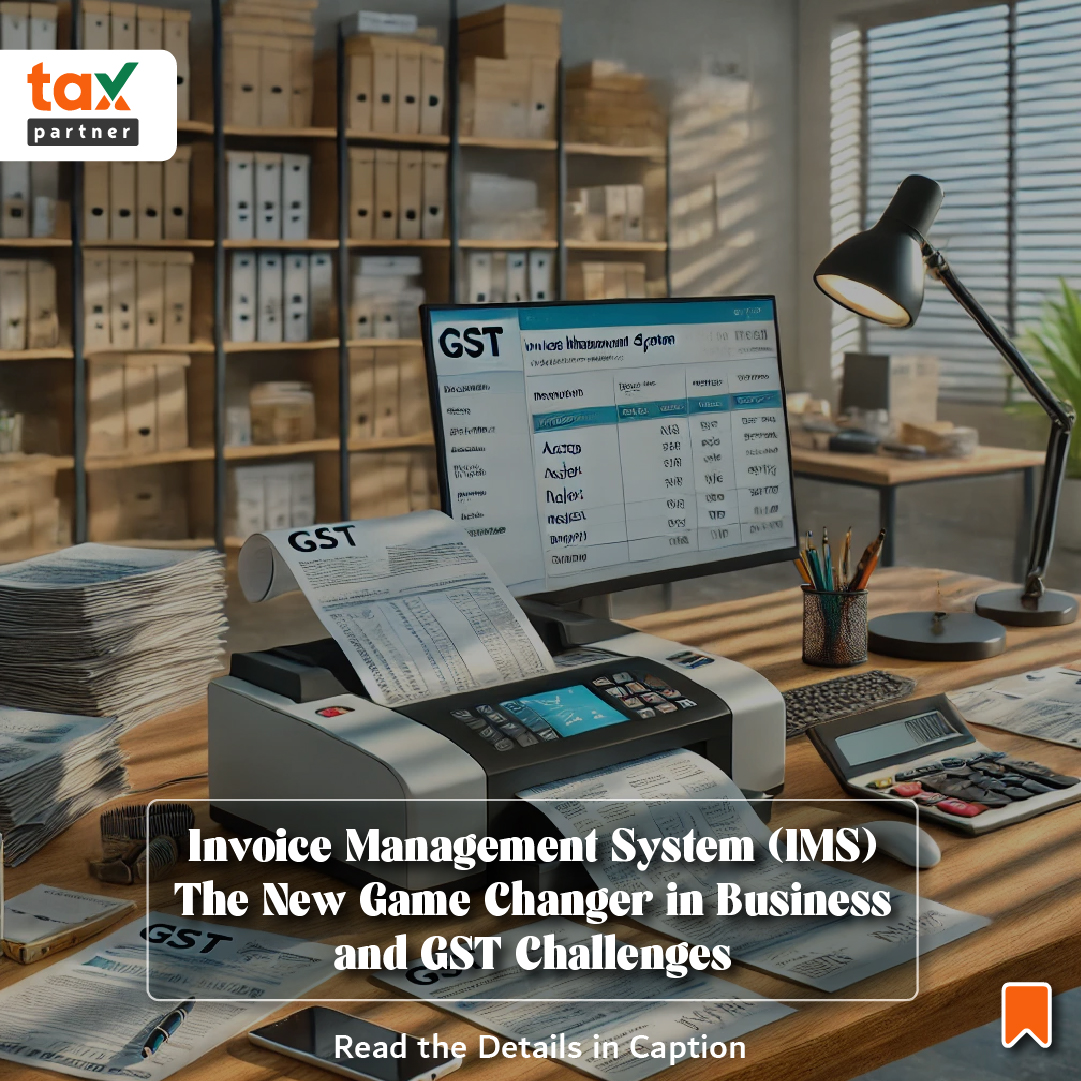Connect with us for all your queries



In business, an invoice is more than just a piece of paper—it is the lifeblood of a company’s financial transactions, and without it, businesses cannot function smoothly. However, with the evolving GST (Goods and Services Tax) regime in India, the management of invoices has grown complex. With new systems like e-invoicing, e-way bills, and now the latest introduction of the Invoice Management System (IMS) from October 1, 2024, businesses are feeling the pinch. While IMS aims to streamline invoice-related processes between suppliers and recipients, it brings both opportunities and challenges, particularly in terms of compliance, litigation, and business operations.
This article delves into the role of invoices in business, the implications of the newly introduced Invoice Management System (IMS), and the challenges businesses may face under the GST regime.
Invoices play a crucial role in any business. They serve as records of transactions, forming the basis for claiming Input Tax Credit (ITC) under the GST framework. Ensuring accuracy and timely action on invoices is vital, especially since the GST department has taken an aggressive approach toward controlling all B2B invoices. With the introduction of Invoice Reference Numbers (IRN) and e-way bills, the government has significantly increased its oversight on these transactions. Now, with the IMS, businesses are tasked with a new set of rules designed to reduce input tax credit-related litigation by addressing disputes between suppliers and recipients over invoices.
The Invoice Management System (IMS) is a tool developed by the GST department to help manage invoices between suppliers and recipients in a streamlined way. It allows recipient taxpayers to accept, reject, or keep invoices pending, making the overall process more transparent and accountable. The system’s key features include:
Supplier Invoices in GSTR-1: Once a supplier saves an invoice in GSTR-1, it appears in the recipient’s IMS dashboard.
Actions by Recipient:
Accept: Invoice flows to GSTR 2B and is auto-populated as eligible ITC in GSTR 3B.
Reject: Invoice flows to the “ITC Rejected” section, and no ITC is granted.
Pending: Carried forward in IMS and needs action within the timeline prescribed under Section 16(4) of the Central GST Act.
No Action: Deemed acceptance, and the invoice is treated as eligible ITC.
This system requires recipients to stay vigilant, as their actions (or inaction) directly affect their ITC claims and the supplier’s tax liability.
With the Invoice Management System (IMS), the process of accepting, rejecting, or keeping invoices pending becomes more structured, but also introduces significant challenges. Let’s take a closer look at some of these challenges:
With the introduction of IMS, businesses will need to invest more in automation and manpower. Regular follow-ups with suppliers and recipients, reconciling records, and checking for discrepancies will require dedicated resources. Each rejection or amendment will need to be handled carefully to avoid errors that could lead to litigation. Small businesses, in particular, may struggle to automate this process due to limited capital.
The GST department’s goal of reducing ITC-related disputes might unintentionally give rise to other forms of litigation. For example, if a recipient rejects a credit note, the supplier’s liability will increase in their GSTR-3B for the following tax period. This could lead to disputes and costly legal battles between businesses. Additionally, with partial acceptance of invoices not allowed, recipients are forced to accept the entire invoice, even when they have only received part of the goods, causing discrepancies.
When invoices are rejected, the recipient’s working capital is blocked, as they are unable to claim input tax credit. If a supplier issues an incorrect invoice, the recipient may reject it, but this rejection can also increase the supplier’s liability, potentially leading to cash flow issues for both parties. Additionally, discrepancies in stock reconciliation can create further problems, leading to litigation if records do not match.
Businesses have already spent significant amounts automating the GSTR 2B system, which was implemented to streamline ITC claims. With the introduction of IMS, businesses will have to spend more on updating their systems. Additionally, the time and effort required for manual oversight—regularly checking for invoice rejections or amendments on the GST portal—will increase.
The IMS introduces various complex rules for handling invoices and tax credits. Key technical points include:
Amendments to Invoices: If a supplier amends an invoice saved in GSTR-1 before it is filed, the amended invoice replaces the original in IMS.
Sequential GSTR 2B: The system generates GSTR 2B for a return period only if GSTR 3B for the previous period is filed.
Rejections and Amendments: Suppliers' liabilities increase if invoices are rejected by the recipient. Meanwhile, amendments to invoices by the supplier can reset the transaction's status in IMS.
With multiple systems in place, such as the IMS, e-invoicing, e-way bills, GSTR 1, and GSTR 3B, businesses face the challenge of reconciliation. Every month, businesses must ensure that all these systems align, and any discrepancies between financial turnover and GST turnover are addressed. Failure to reconcile these systems properly could lead to a surge in notices from the GST department, further adding to the business's compliance burden.
The Invoice Management System (IMS) is a significant development in India’s GST regime. While it aims to streamline the invoice acceptance process and reduce ITC-related litigation, it presents businesses with new challenges. Increased workload, automation costs, working capital blockages, and litigation risks are just some of the issues businesses will need to navigate as they adapt to this new system.
For businesses, staying compliant and avoiding litigation will require both technological investment and close collaboration with suppliers and recipients. With the GST landscape becoming more intricate, businesses need to stay agile and proactive in their approach to managing invoices.
Tax Partner is India’s most reliable online business service platform, dedicated to helping you in starting, growing, & flourishing your business with our wide array of expert services at a very affordable cost.